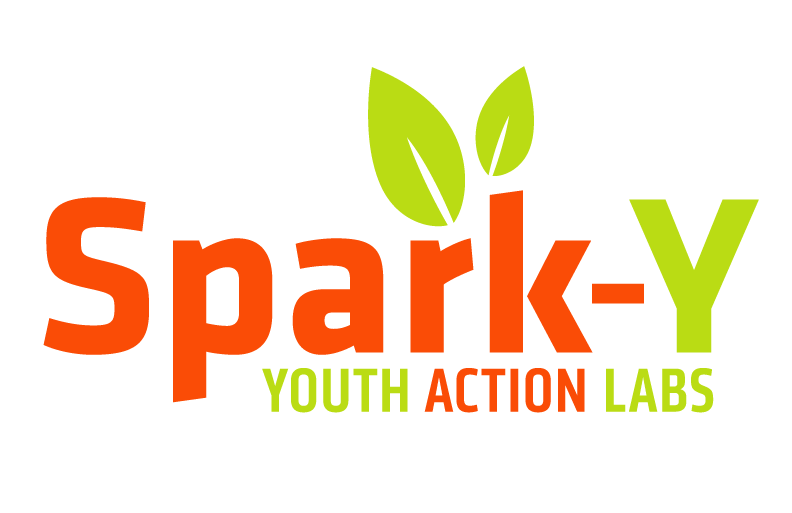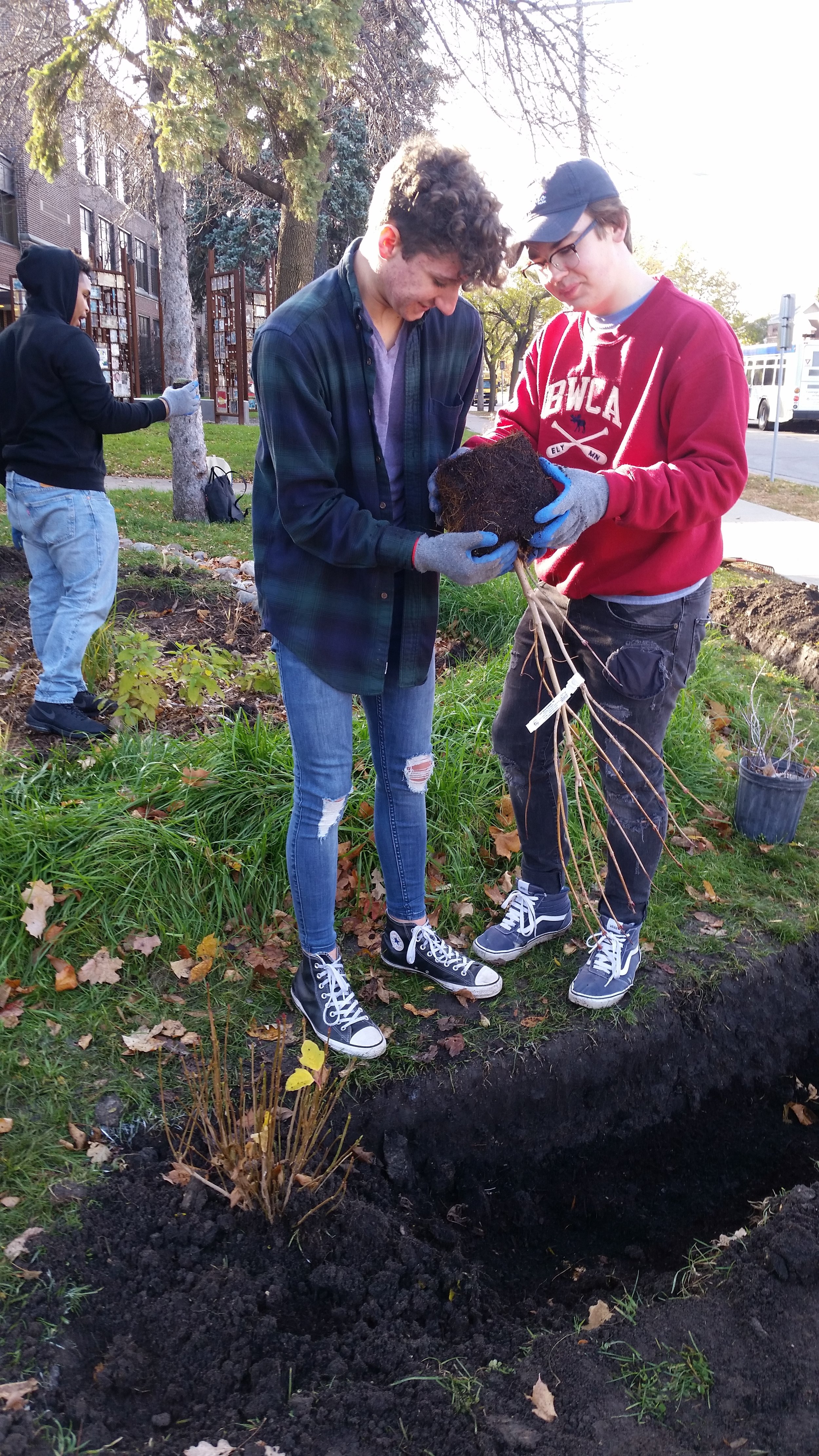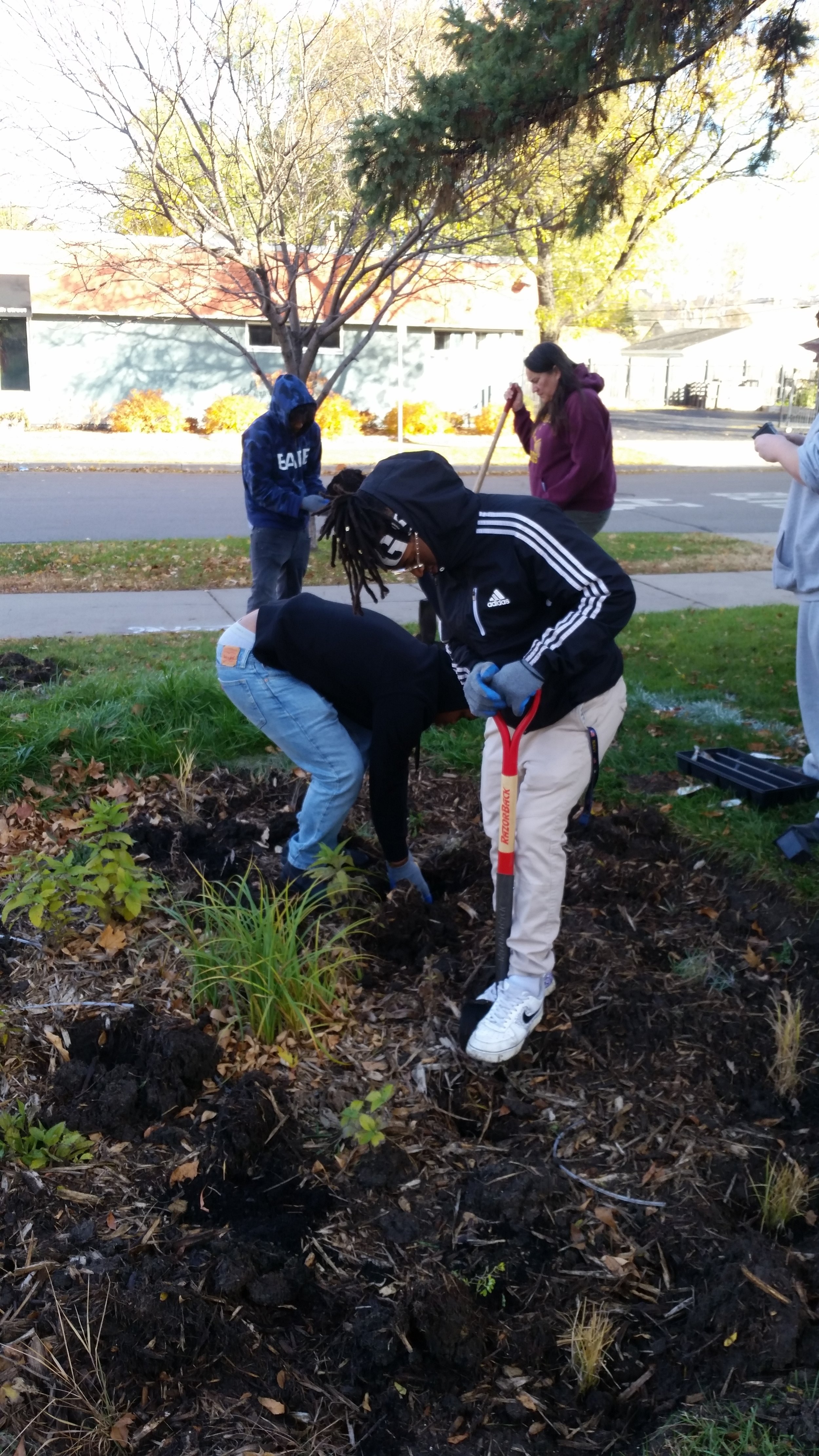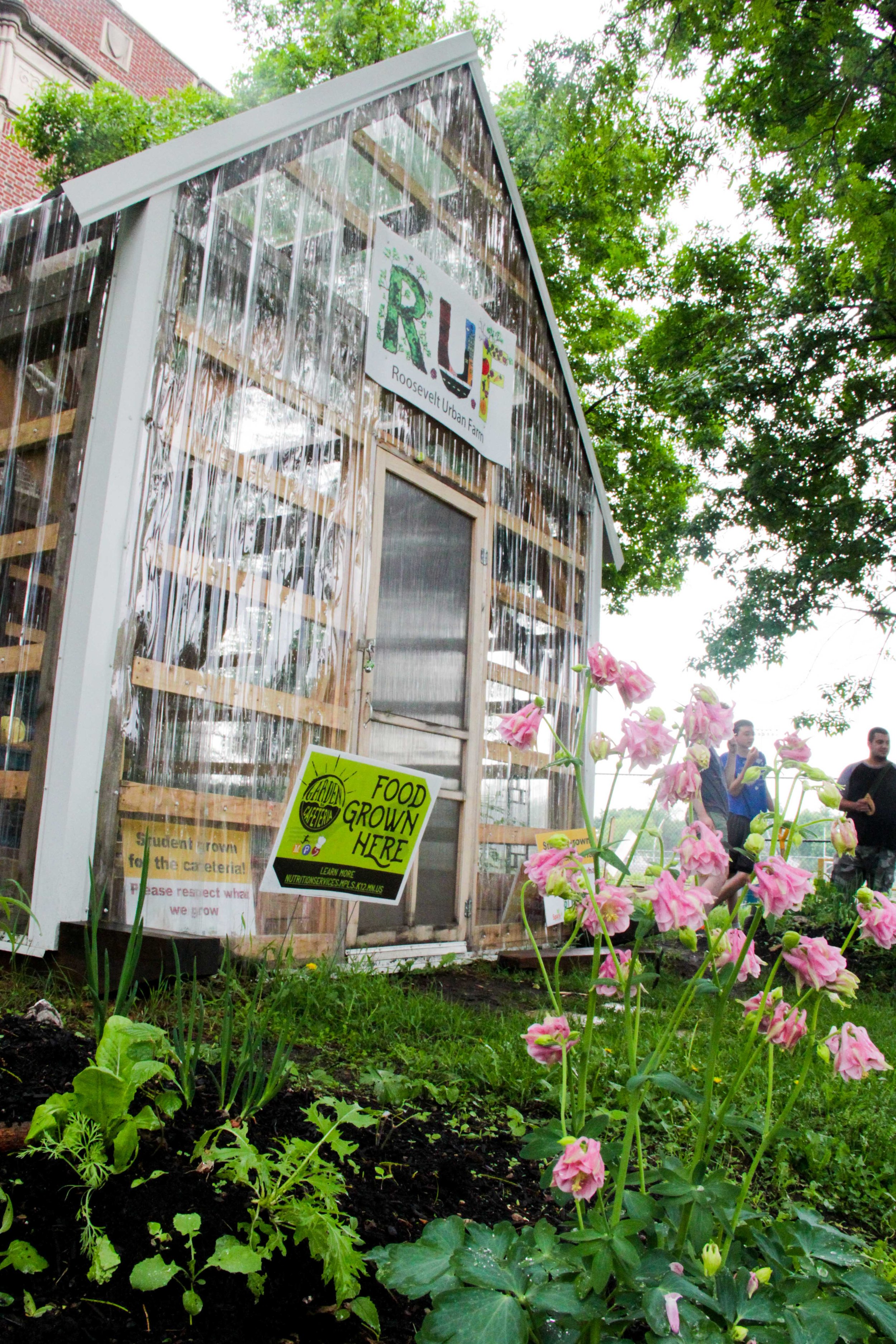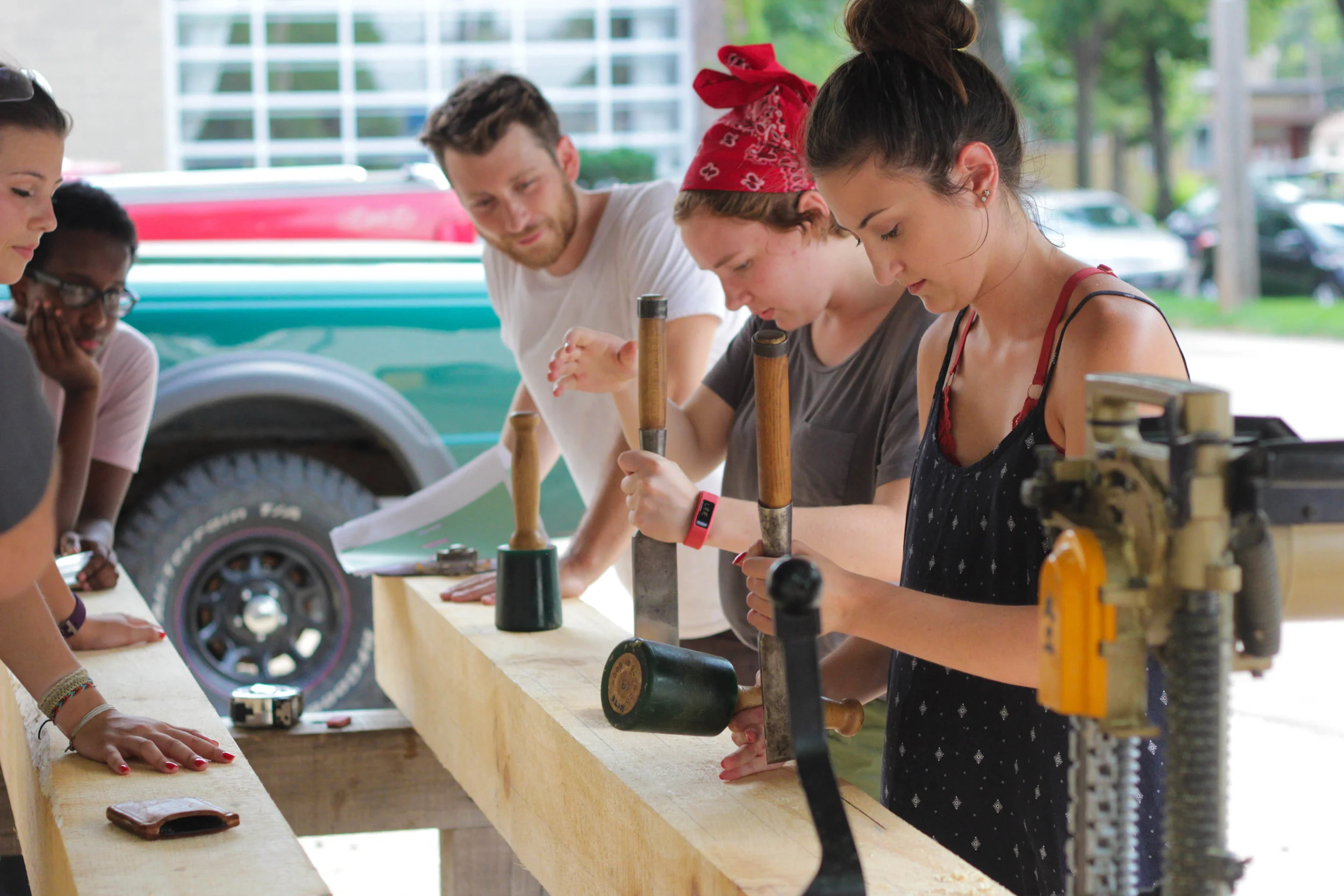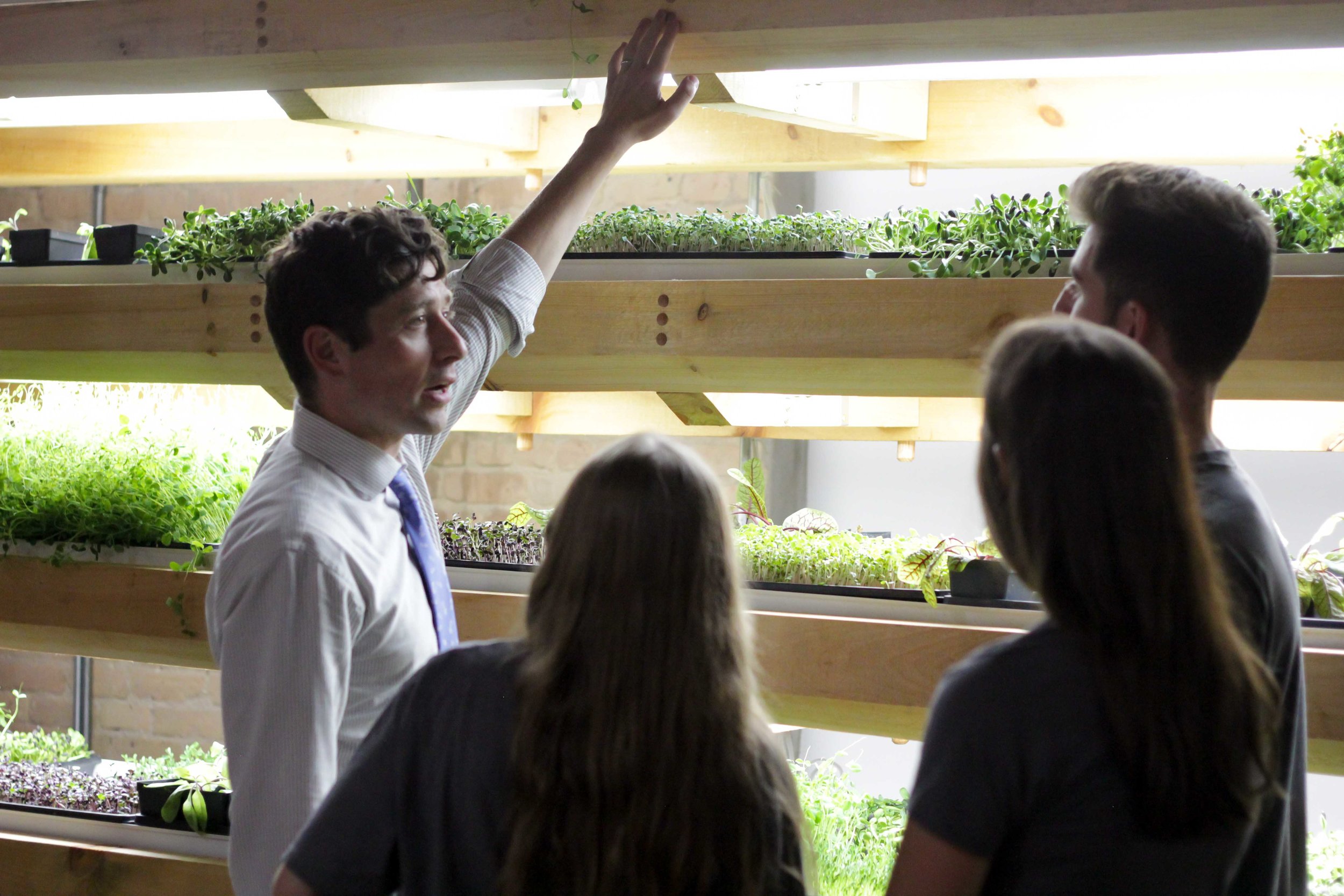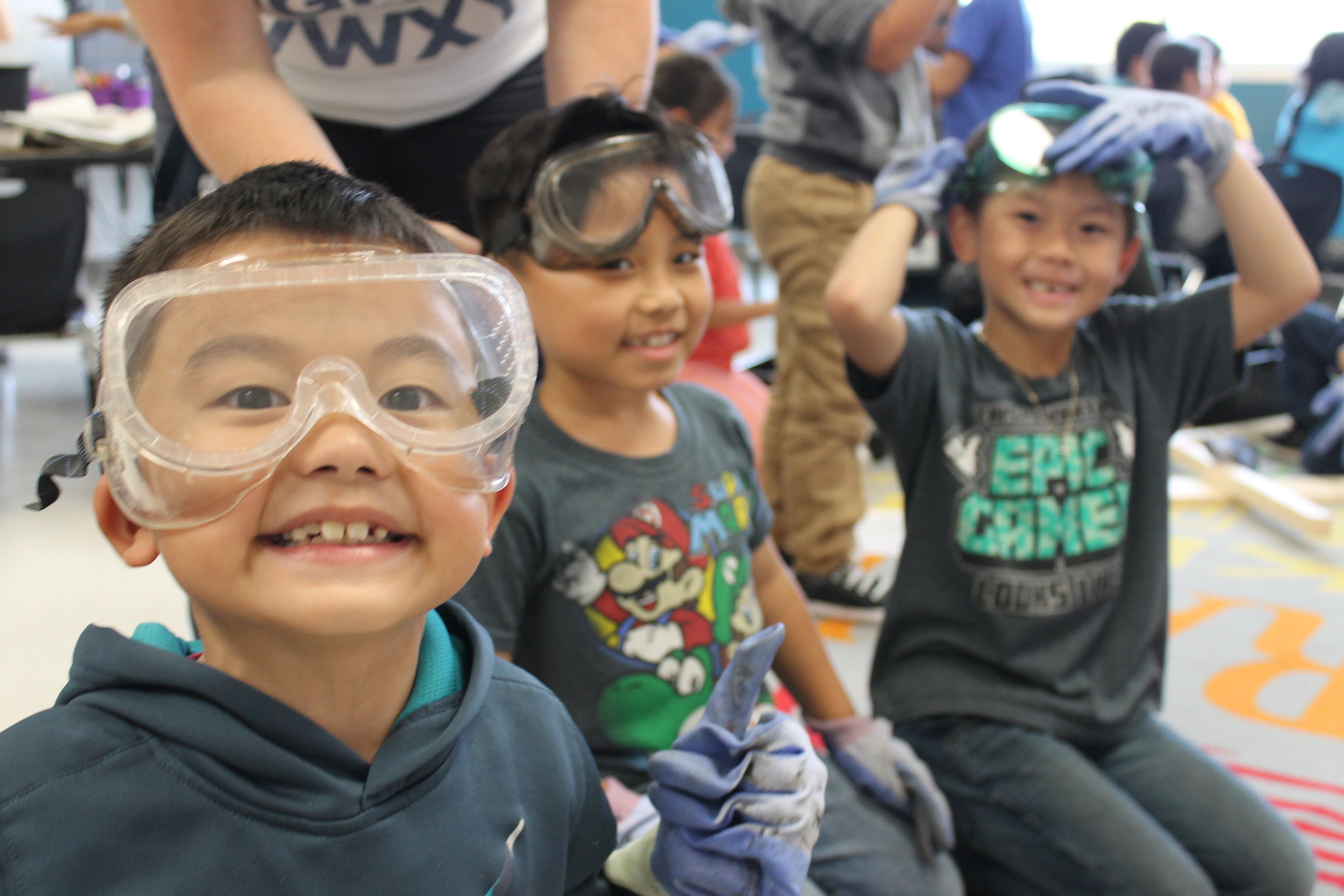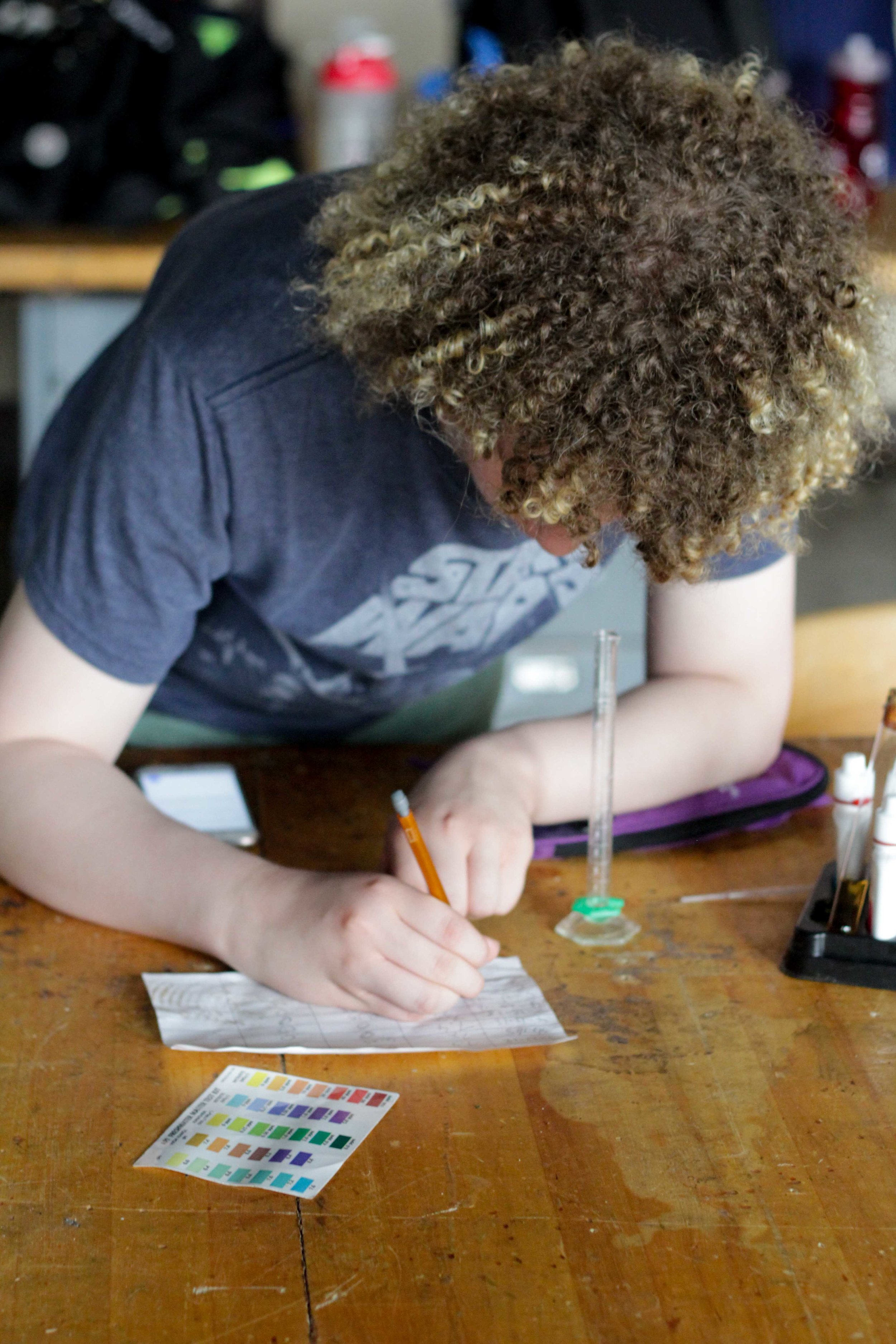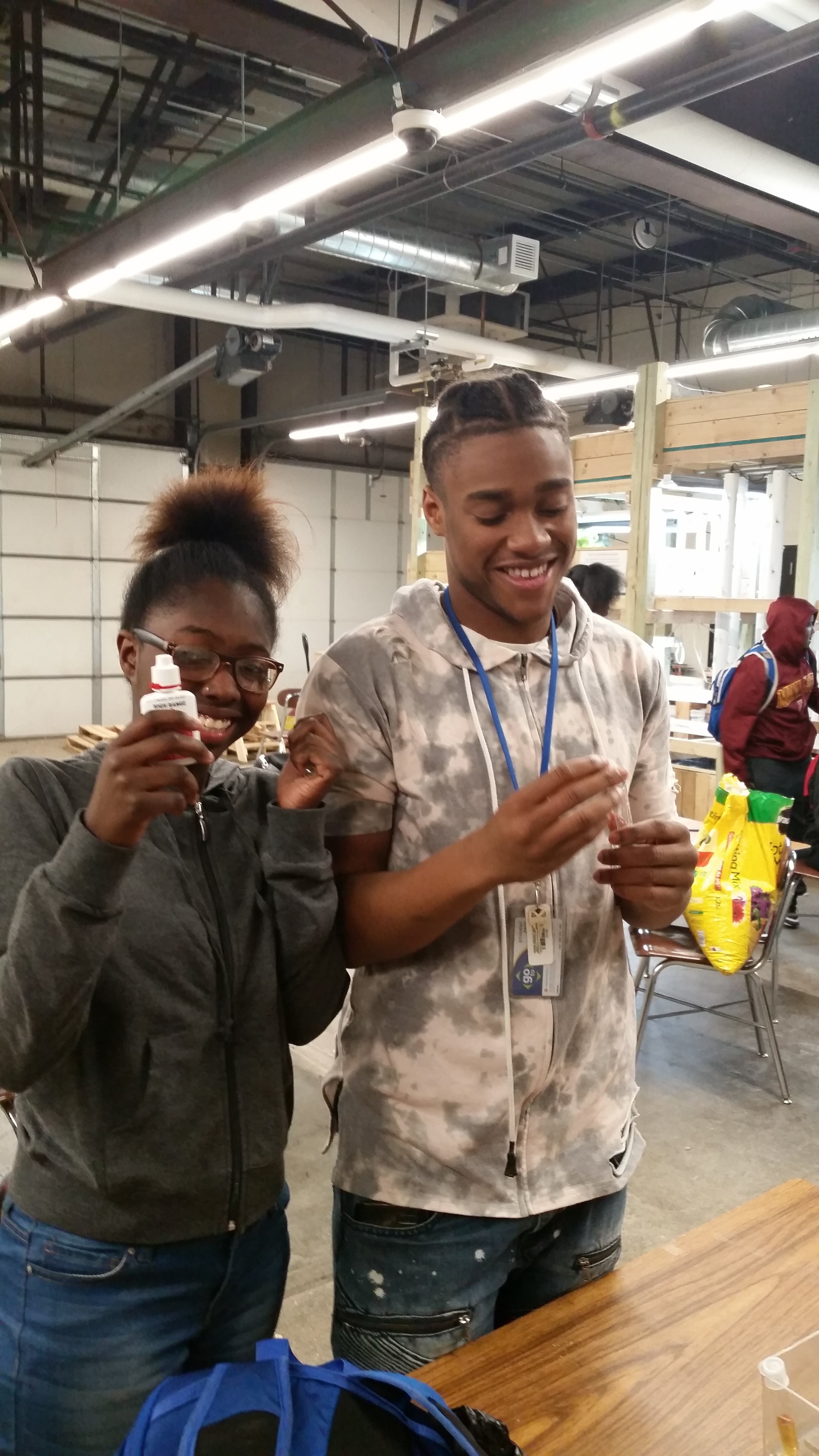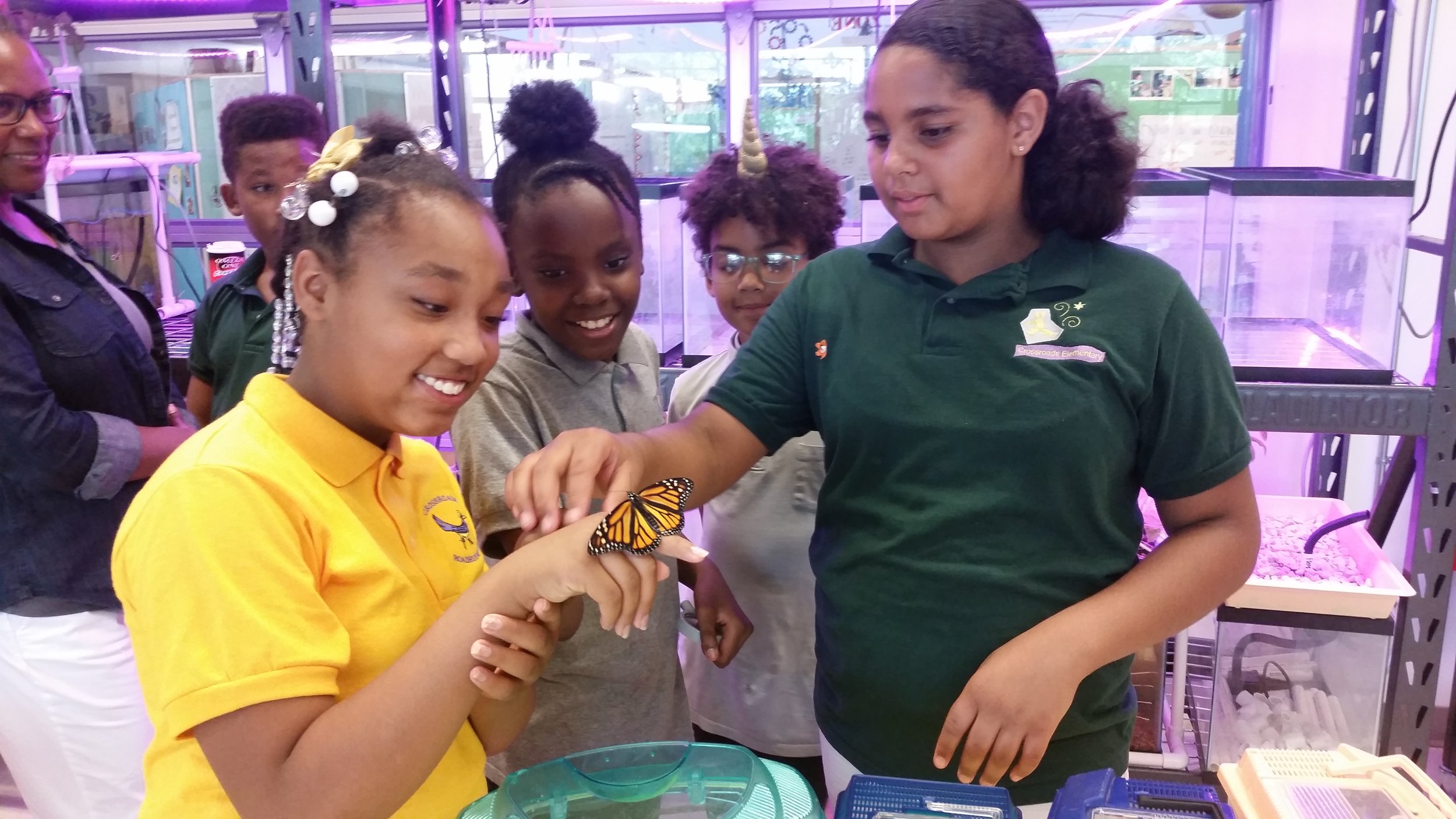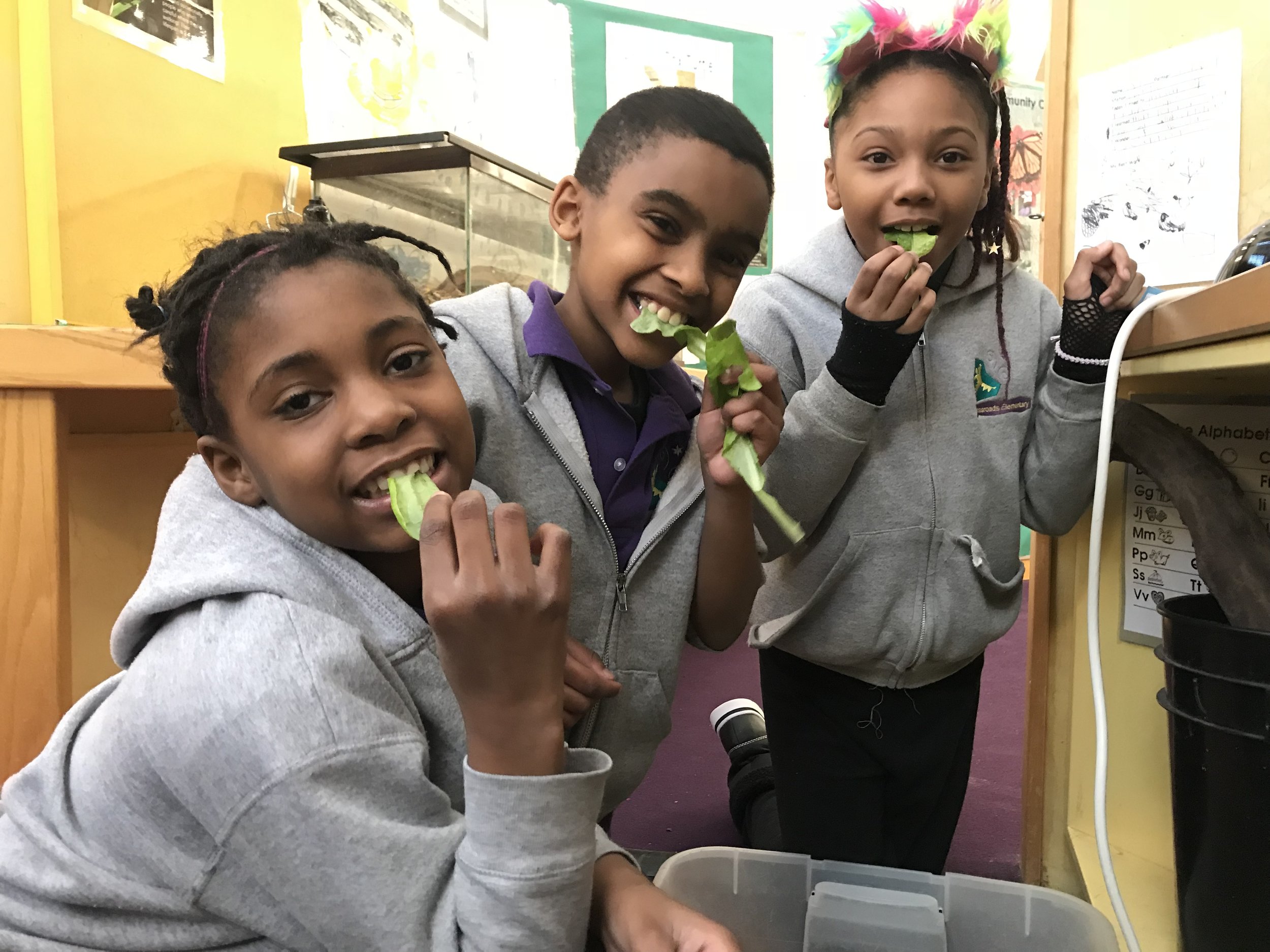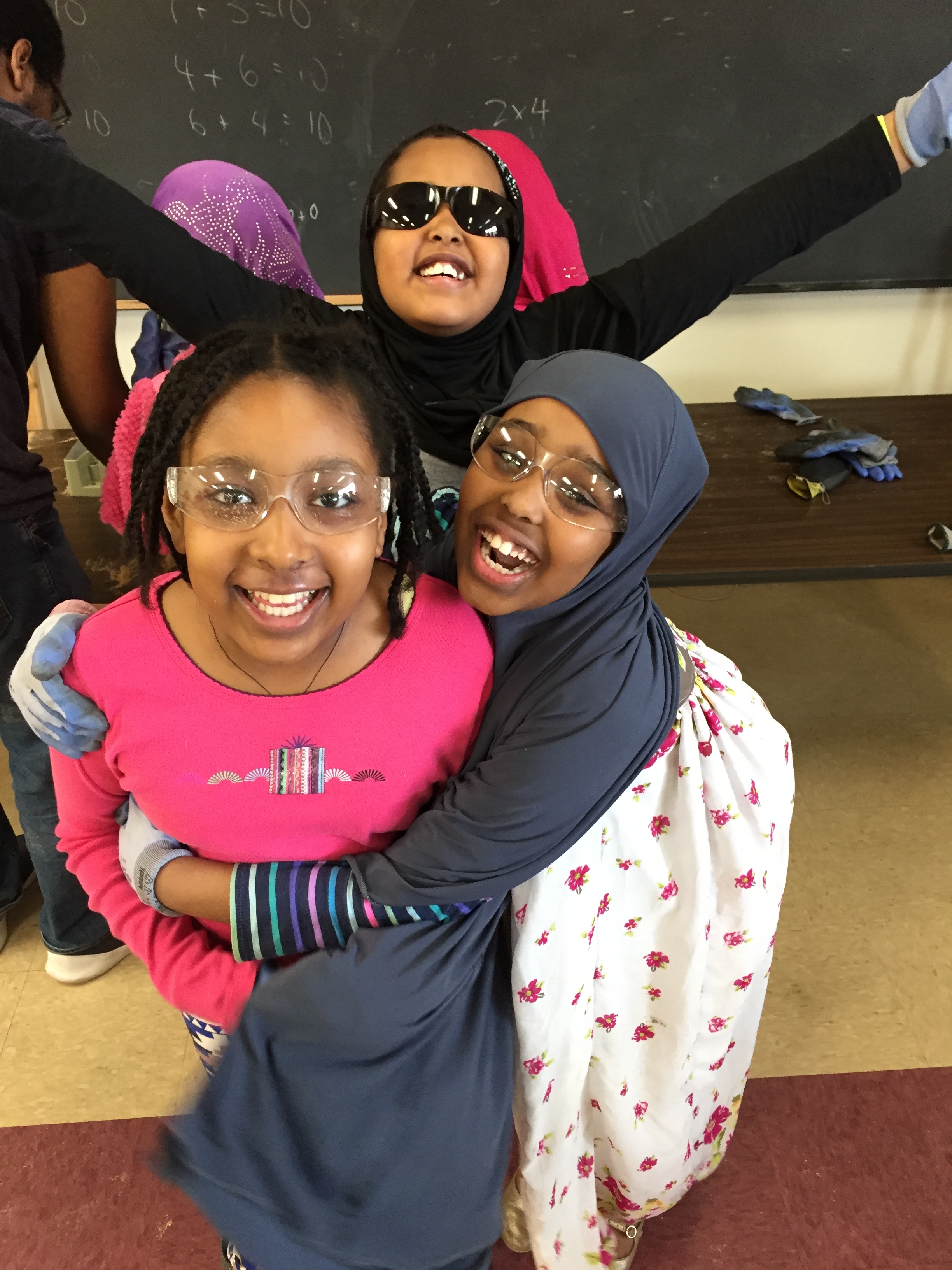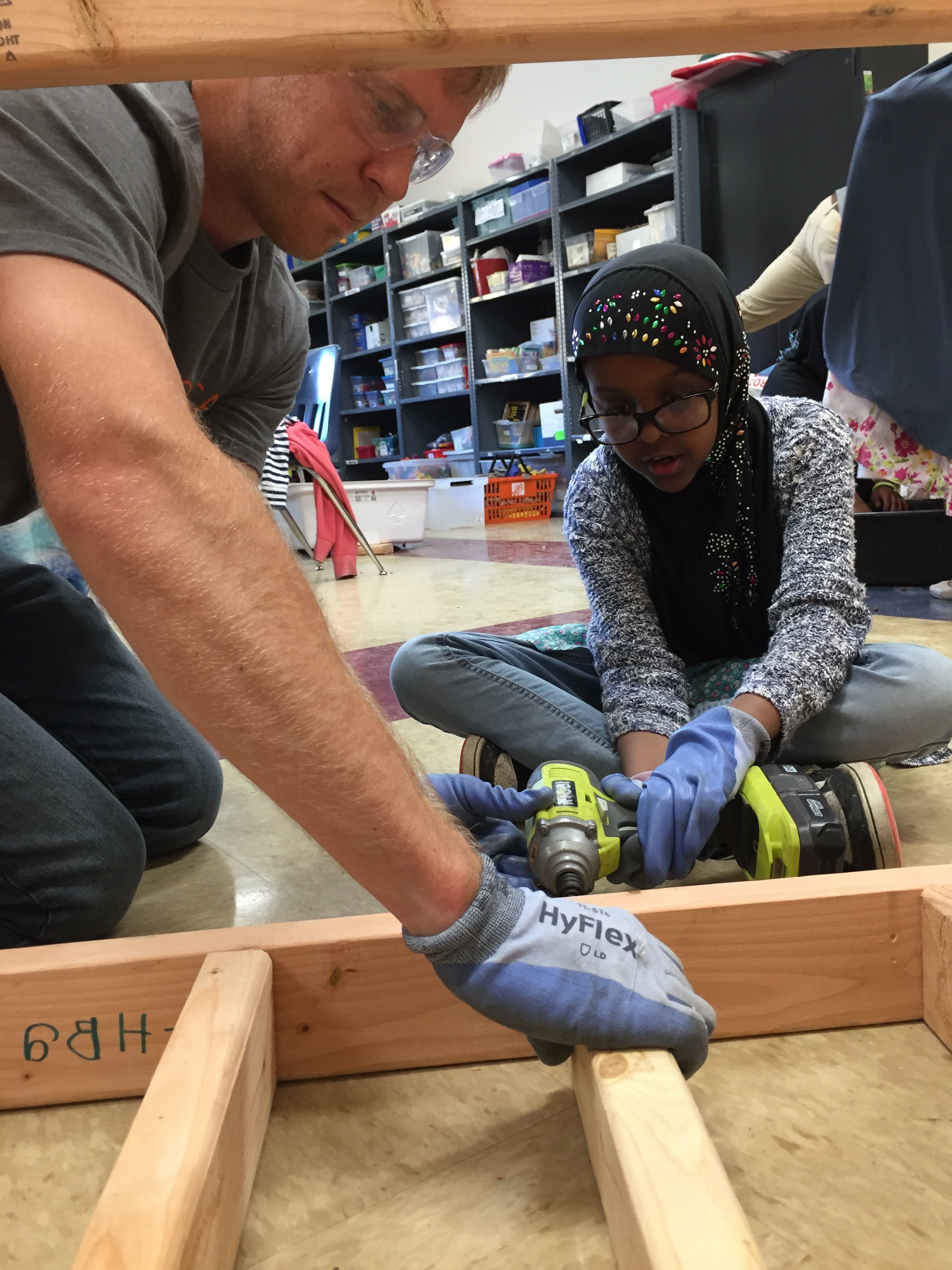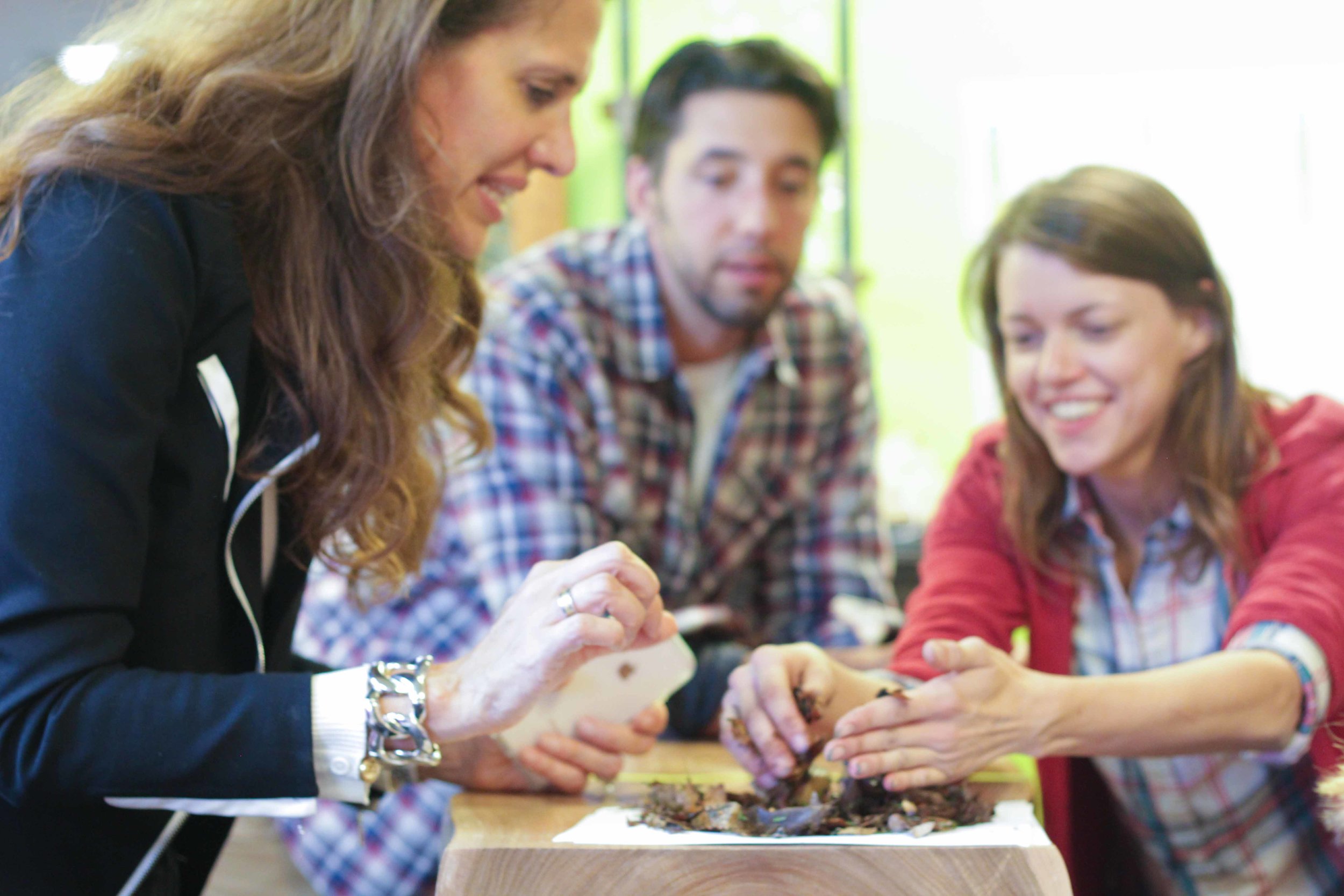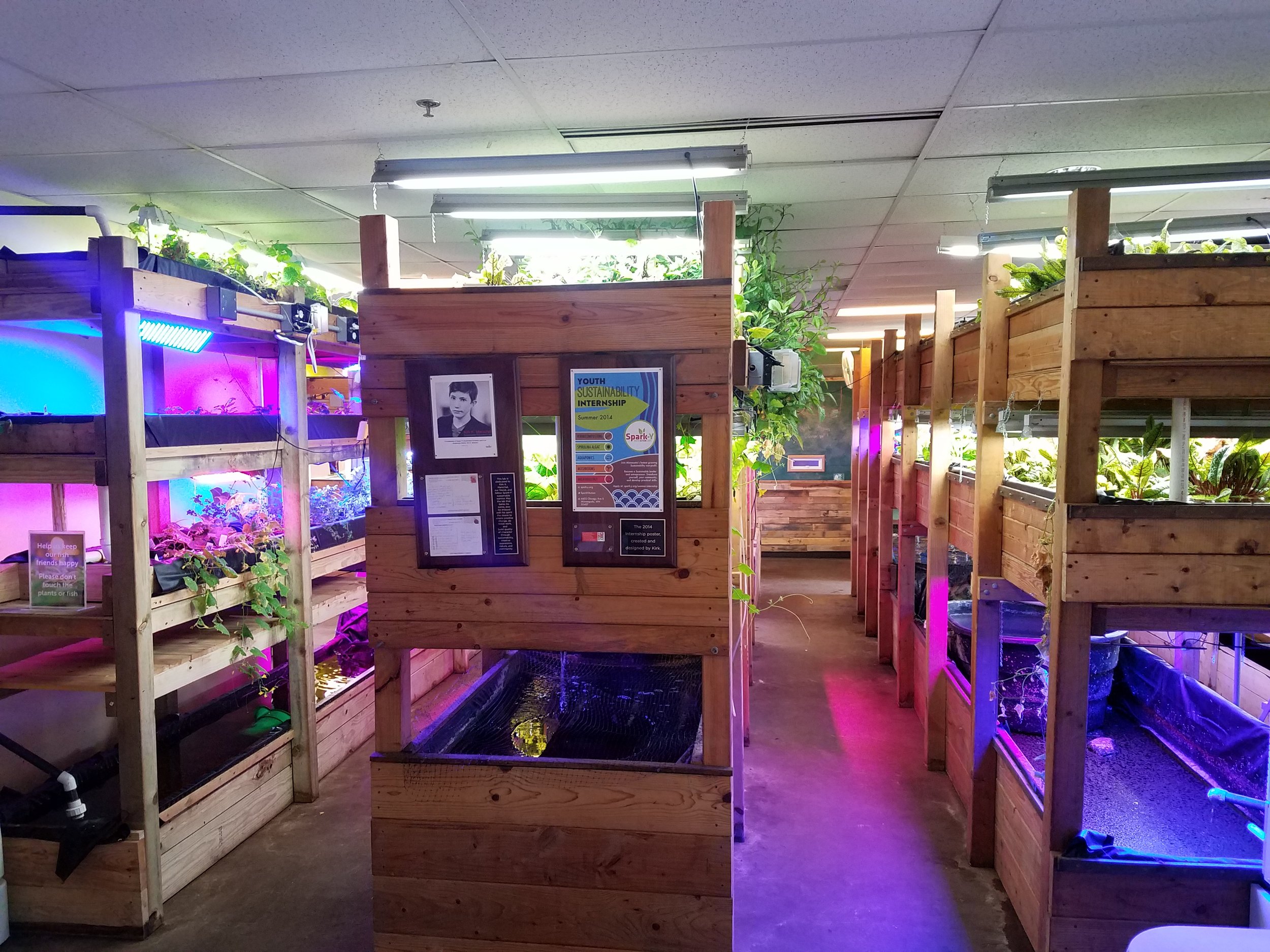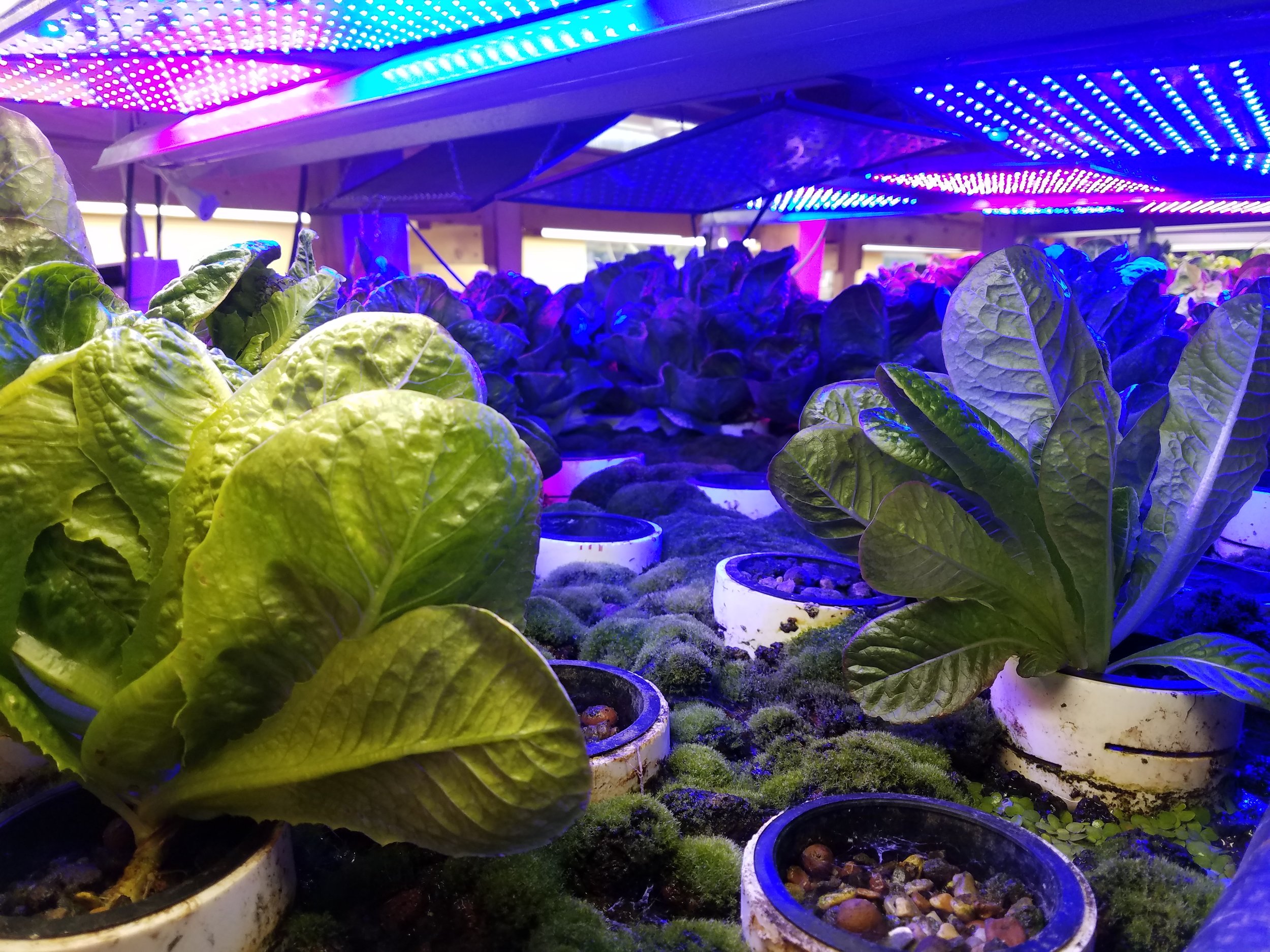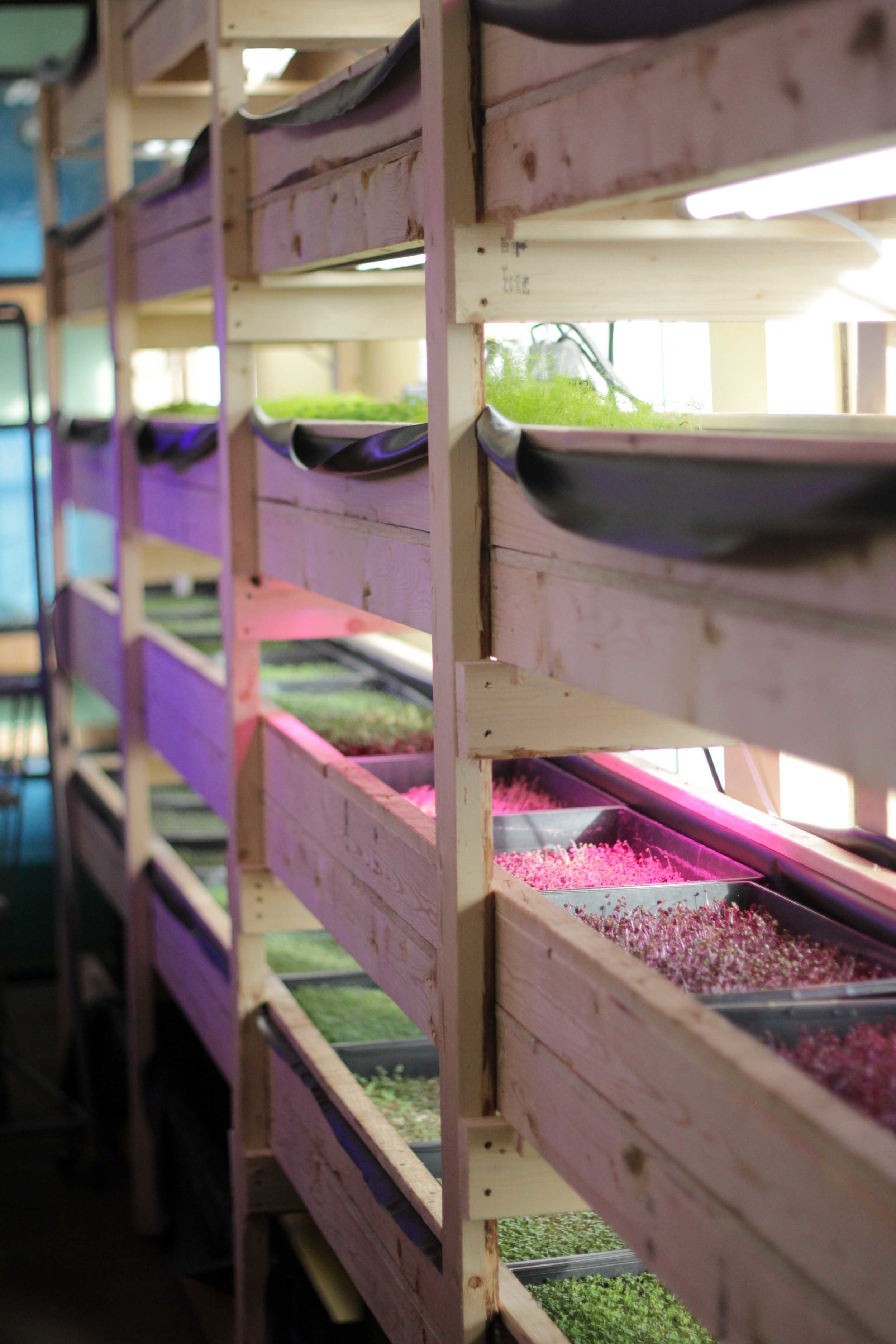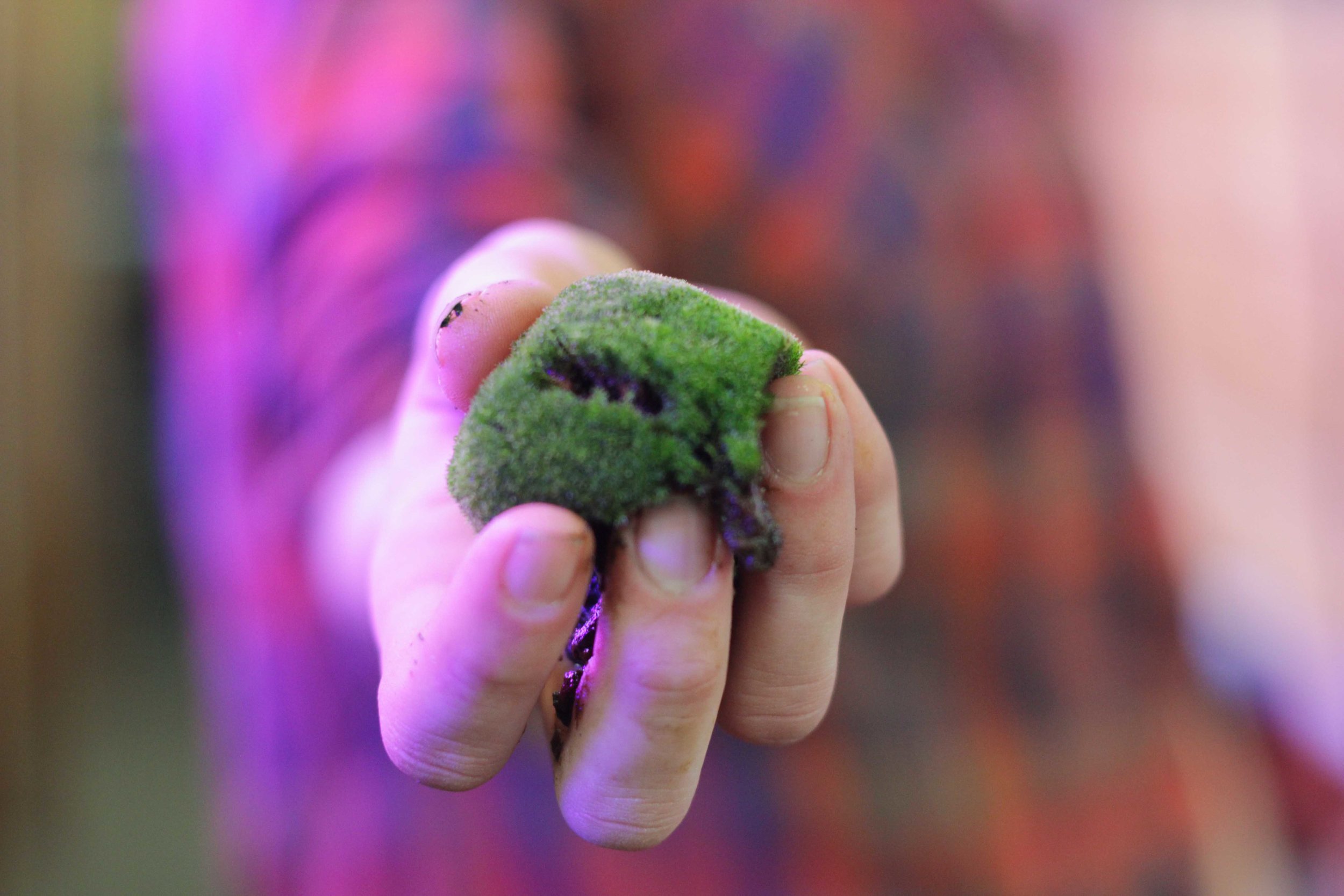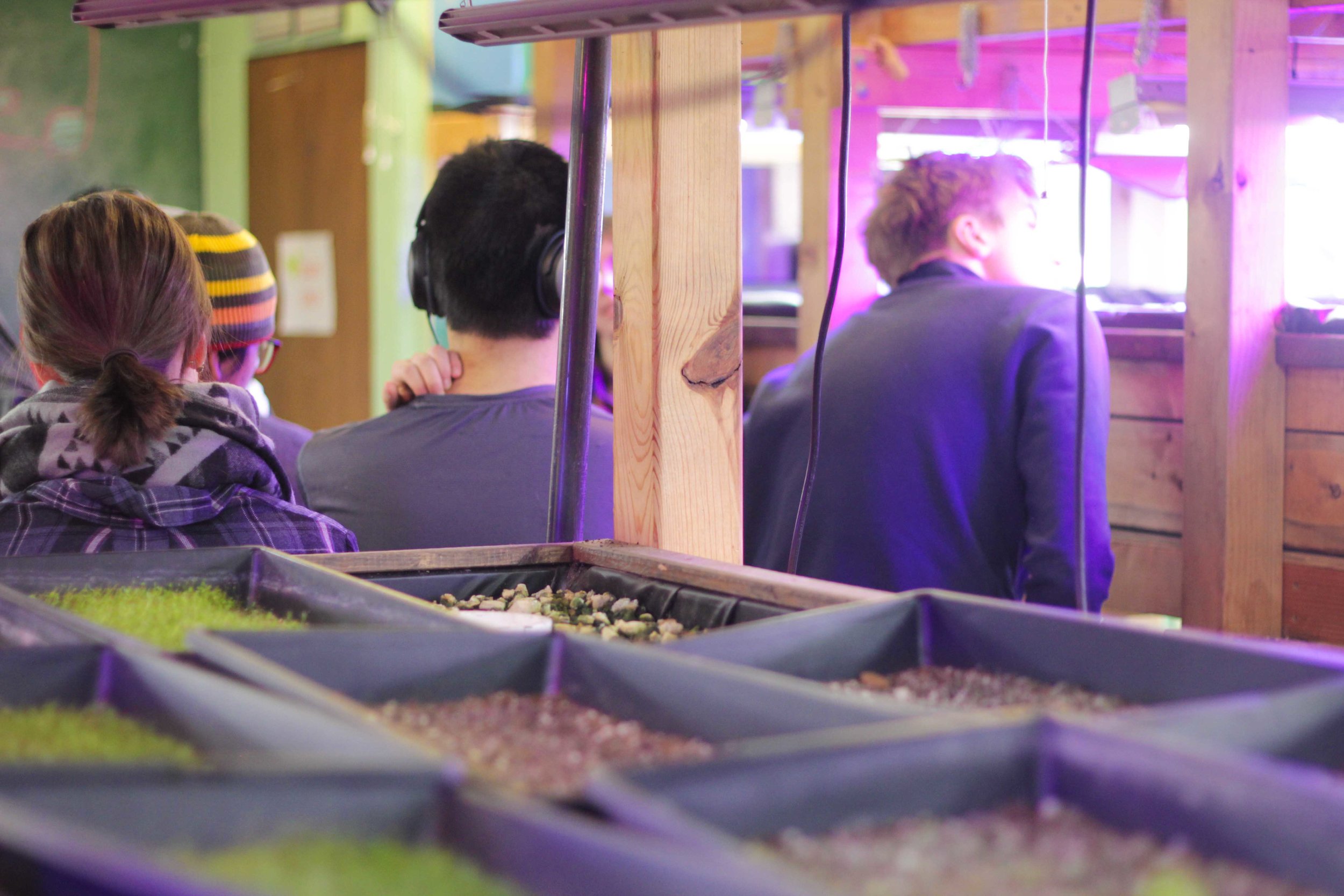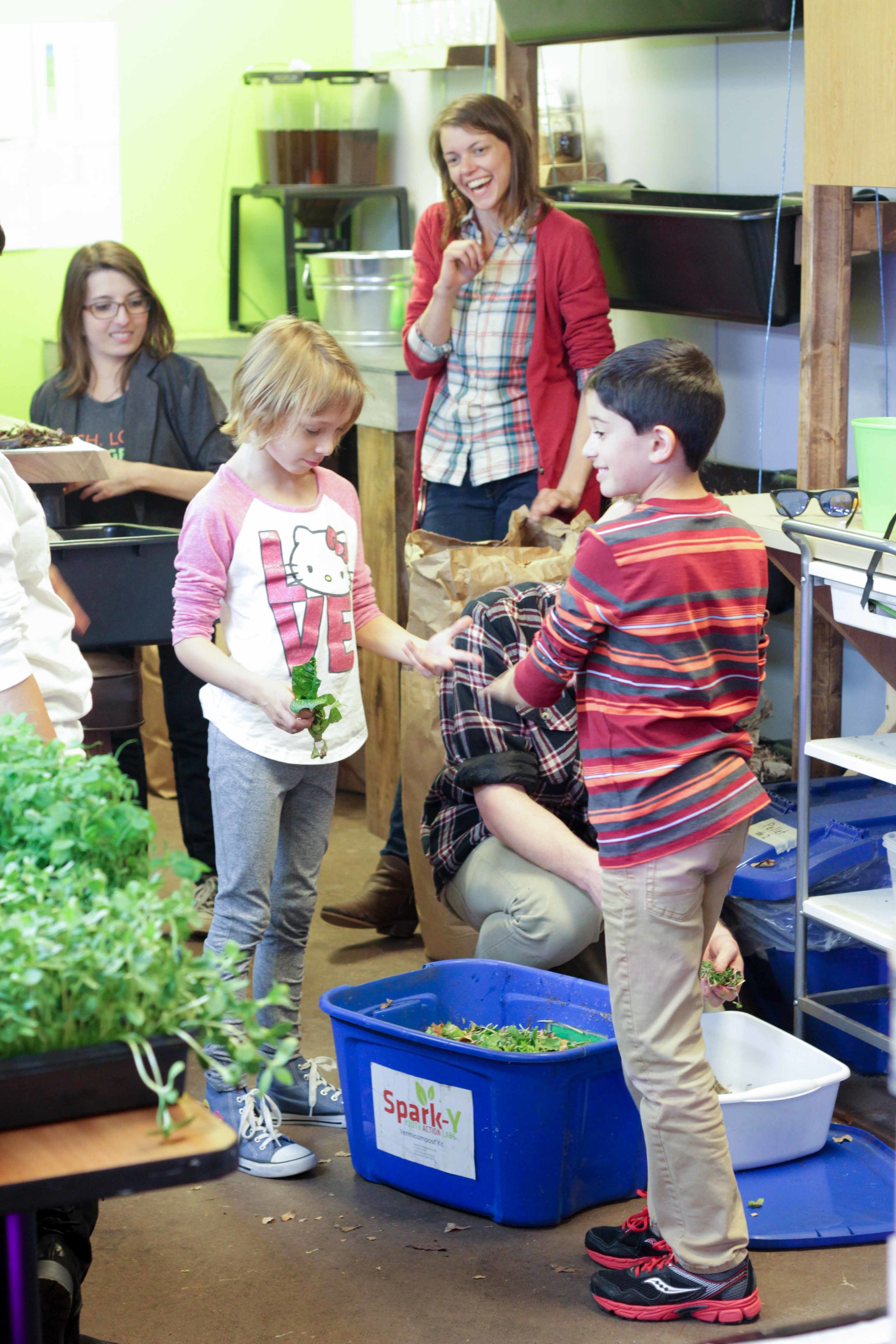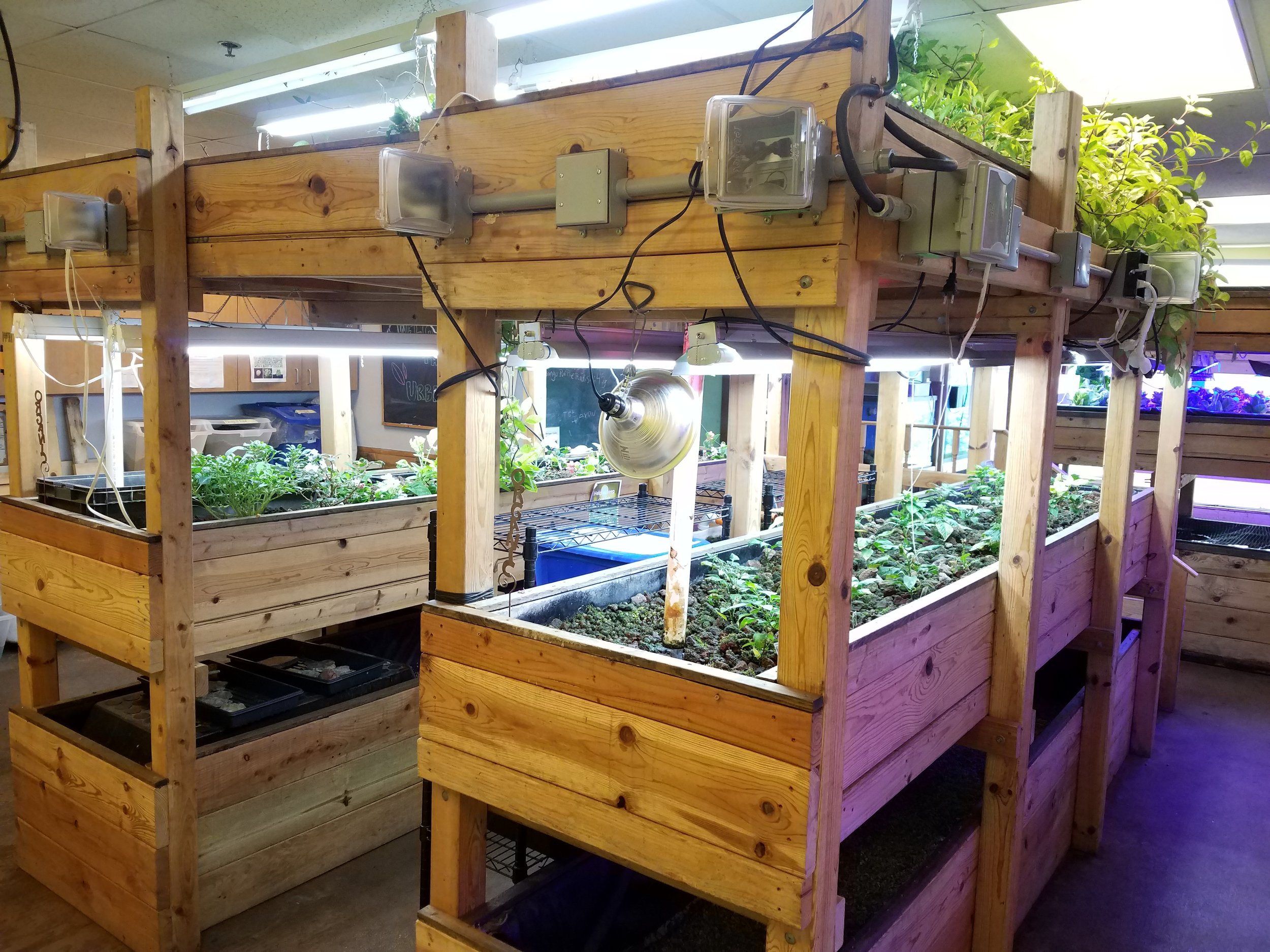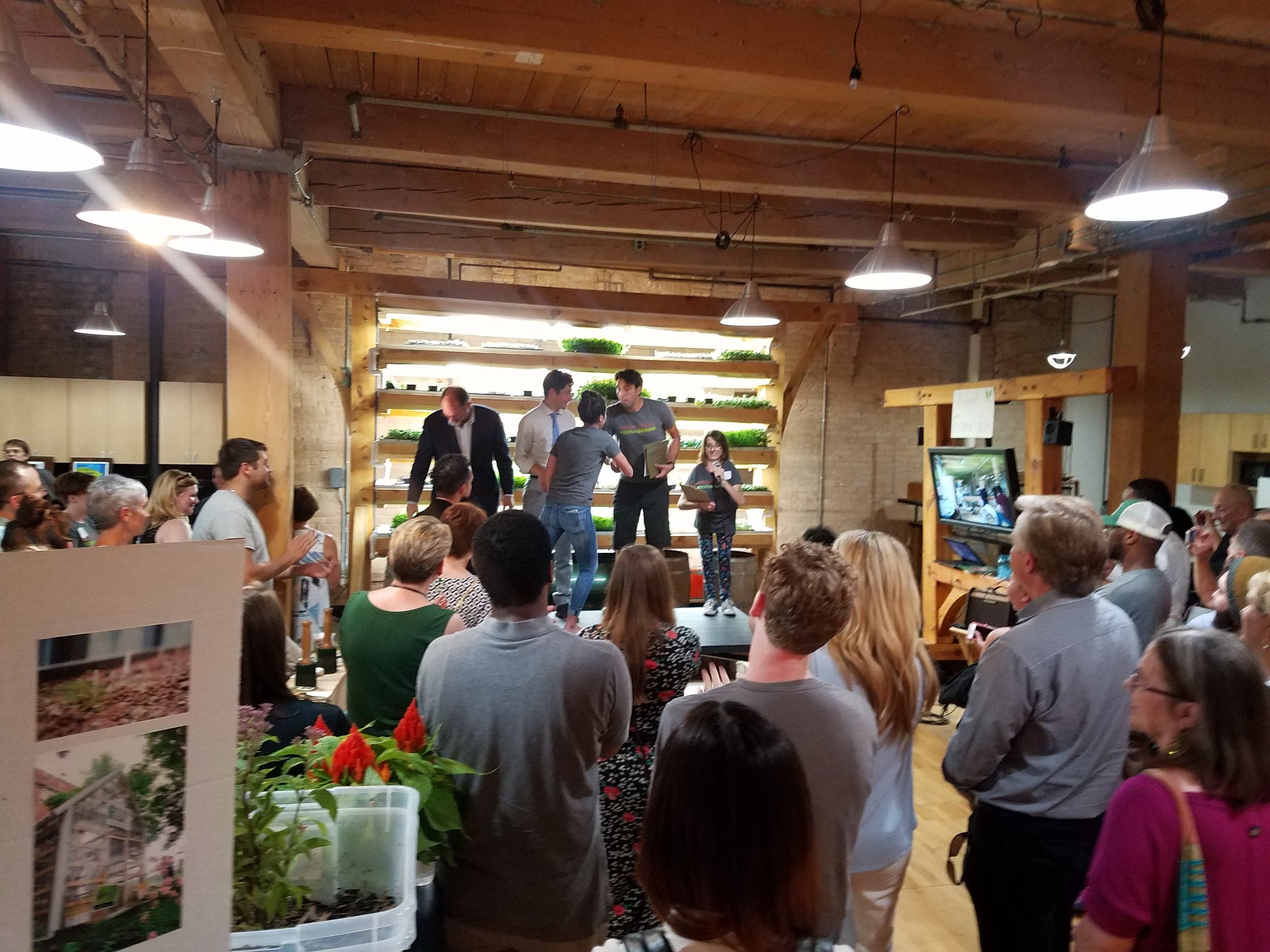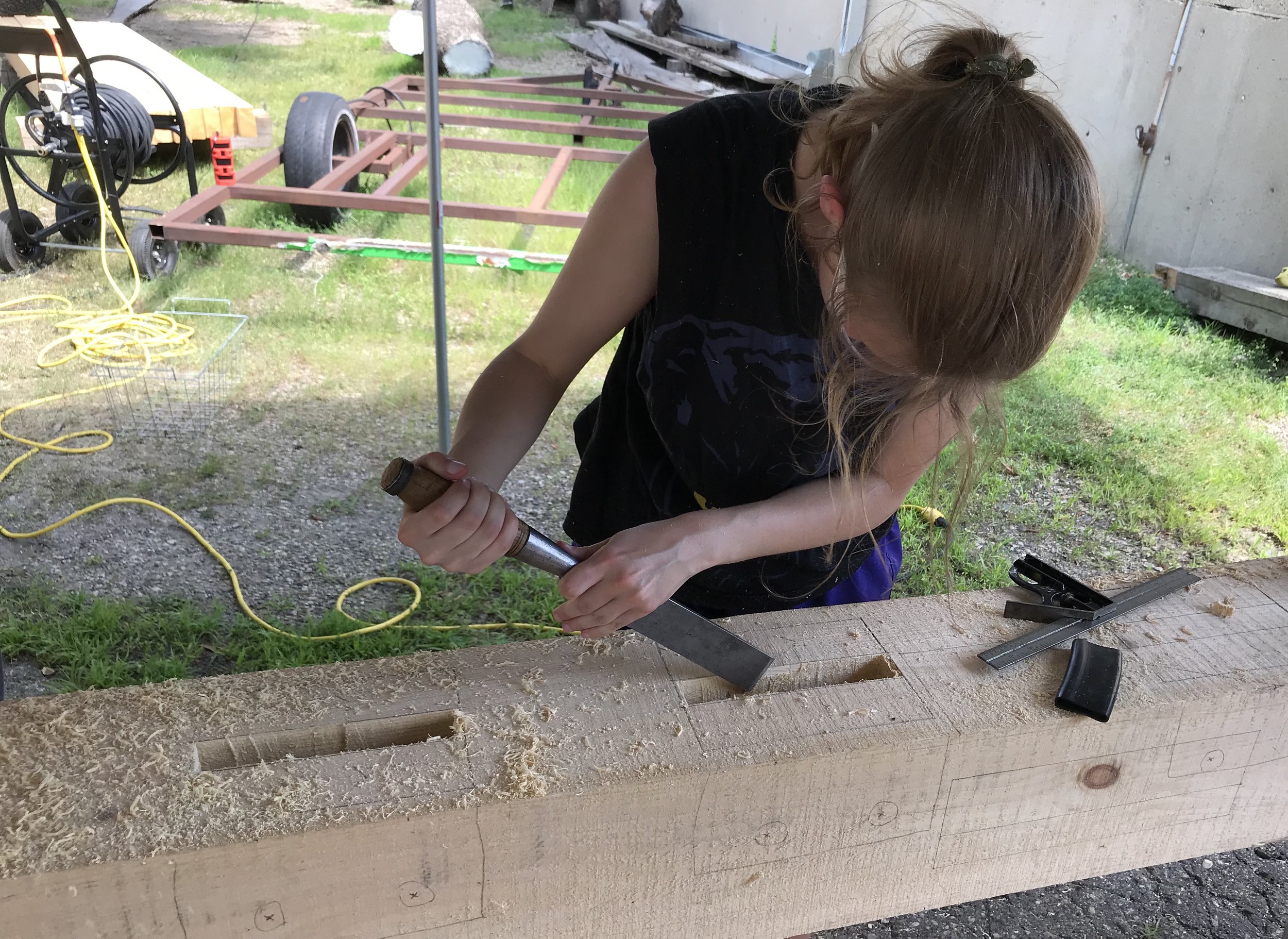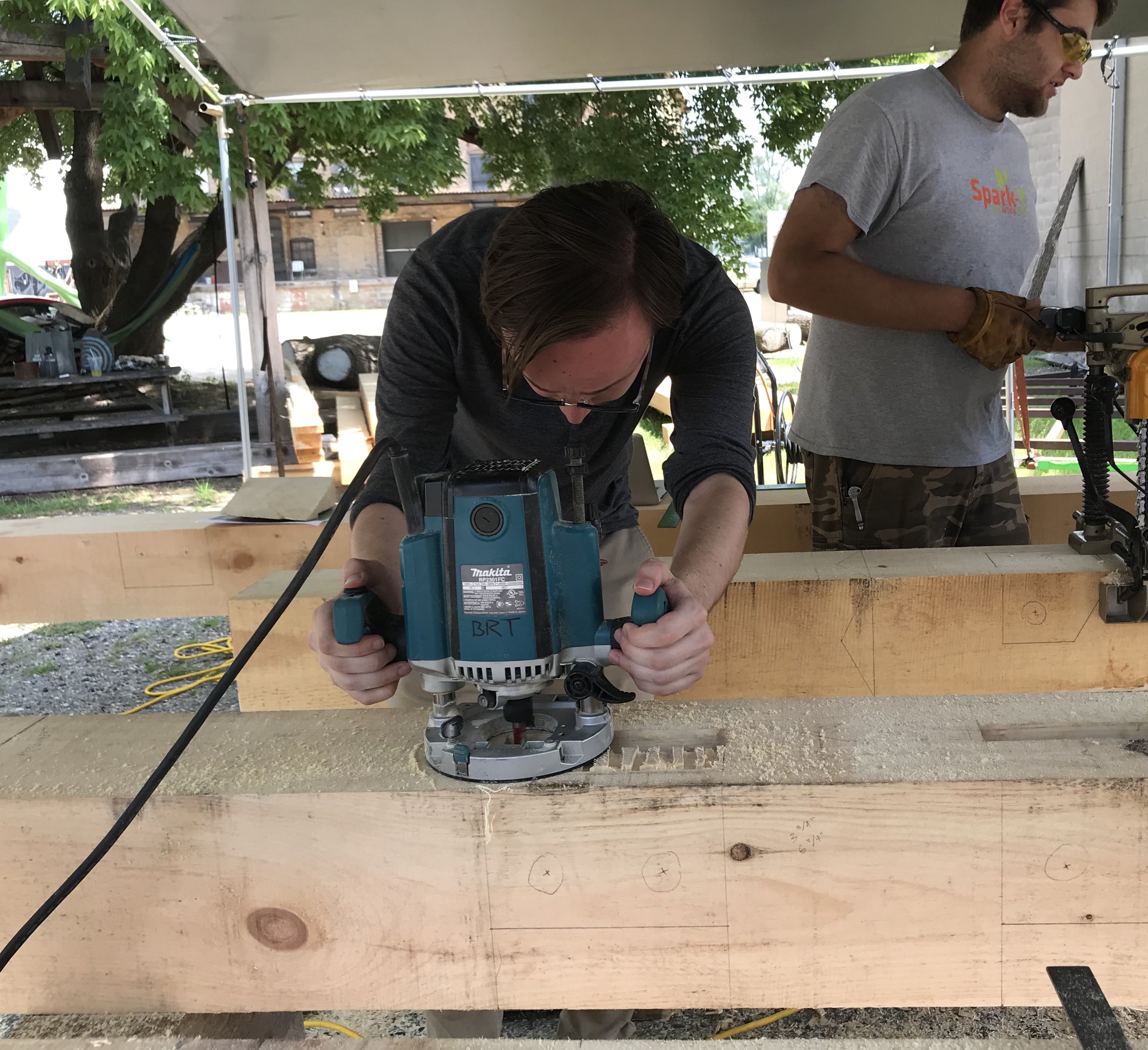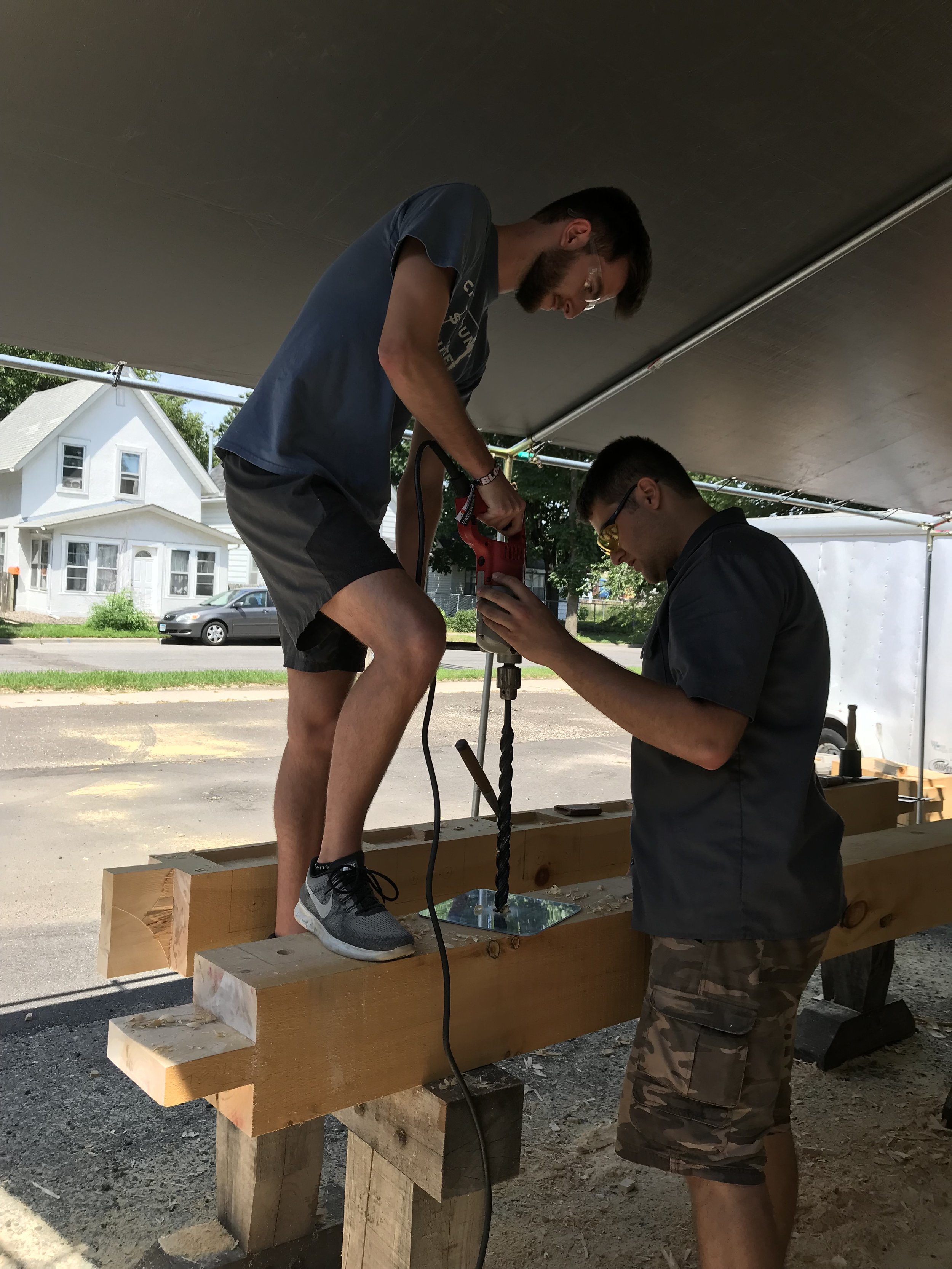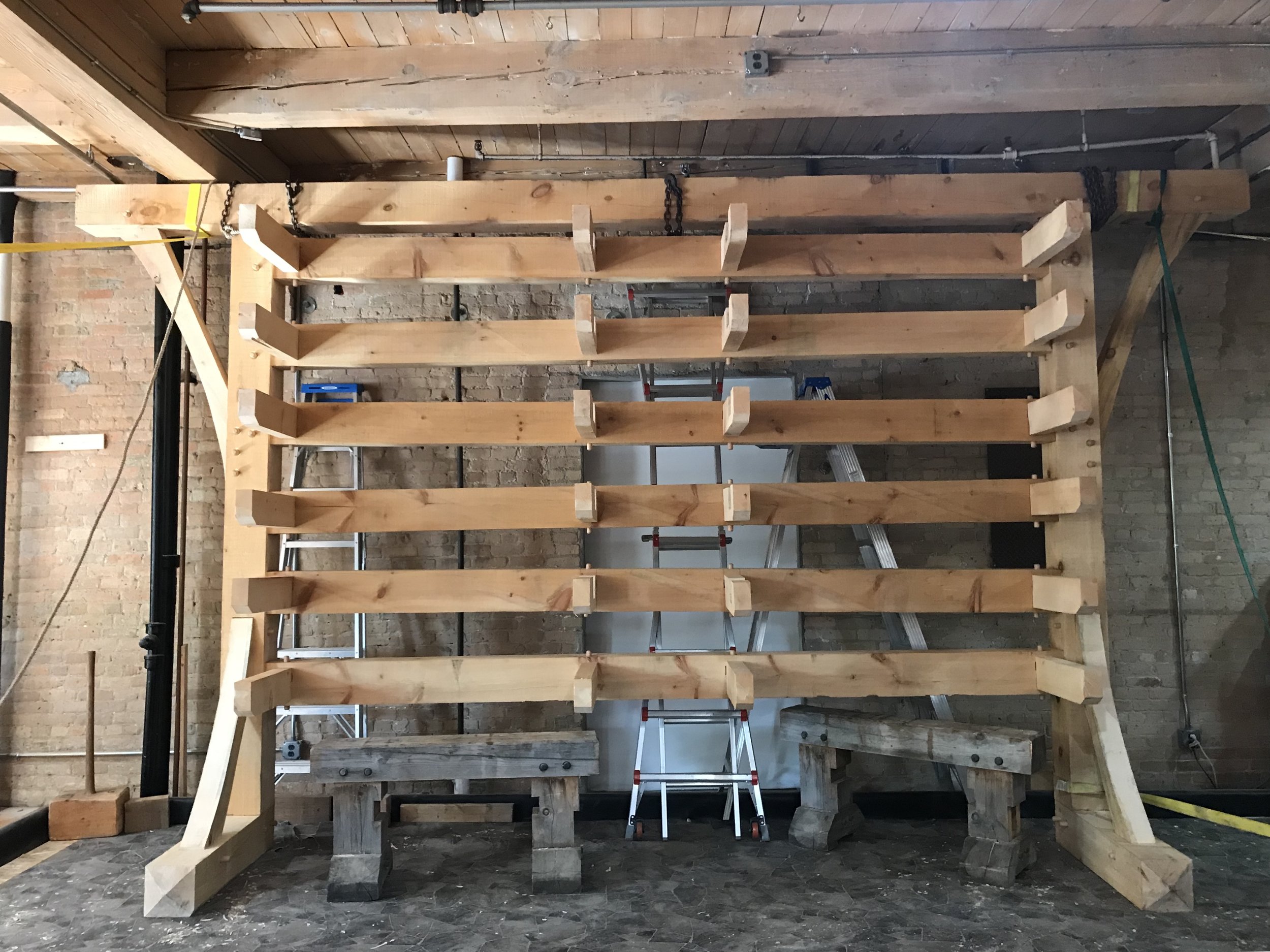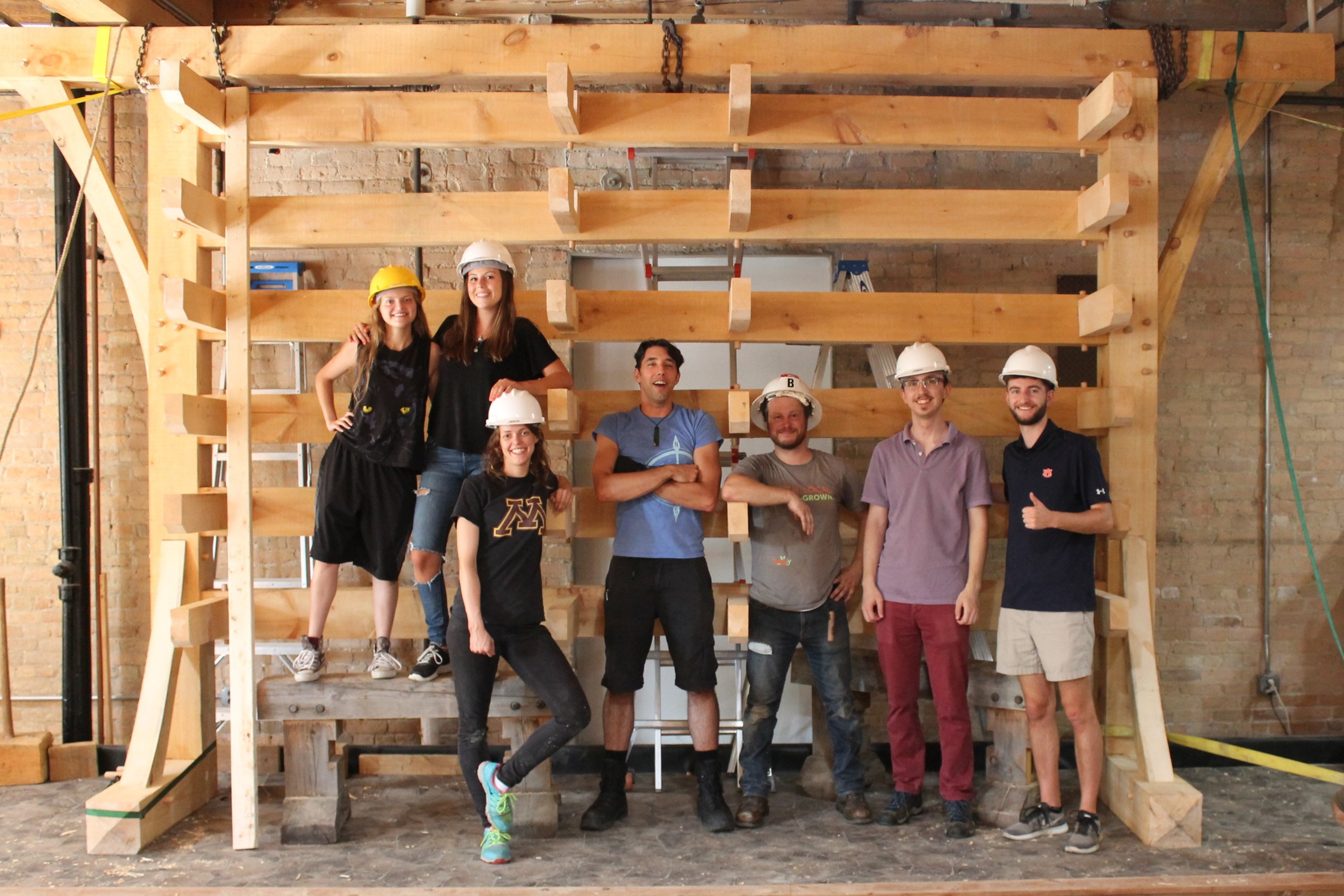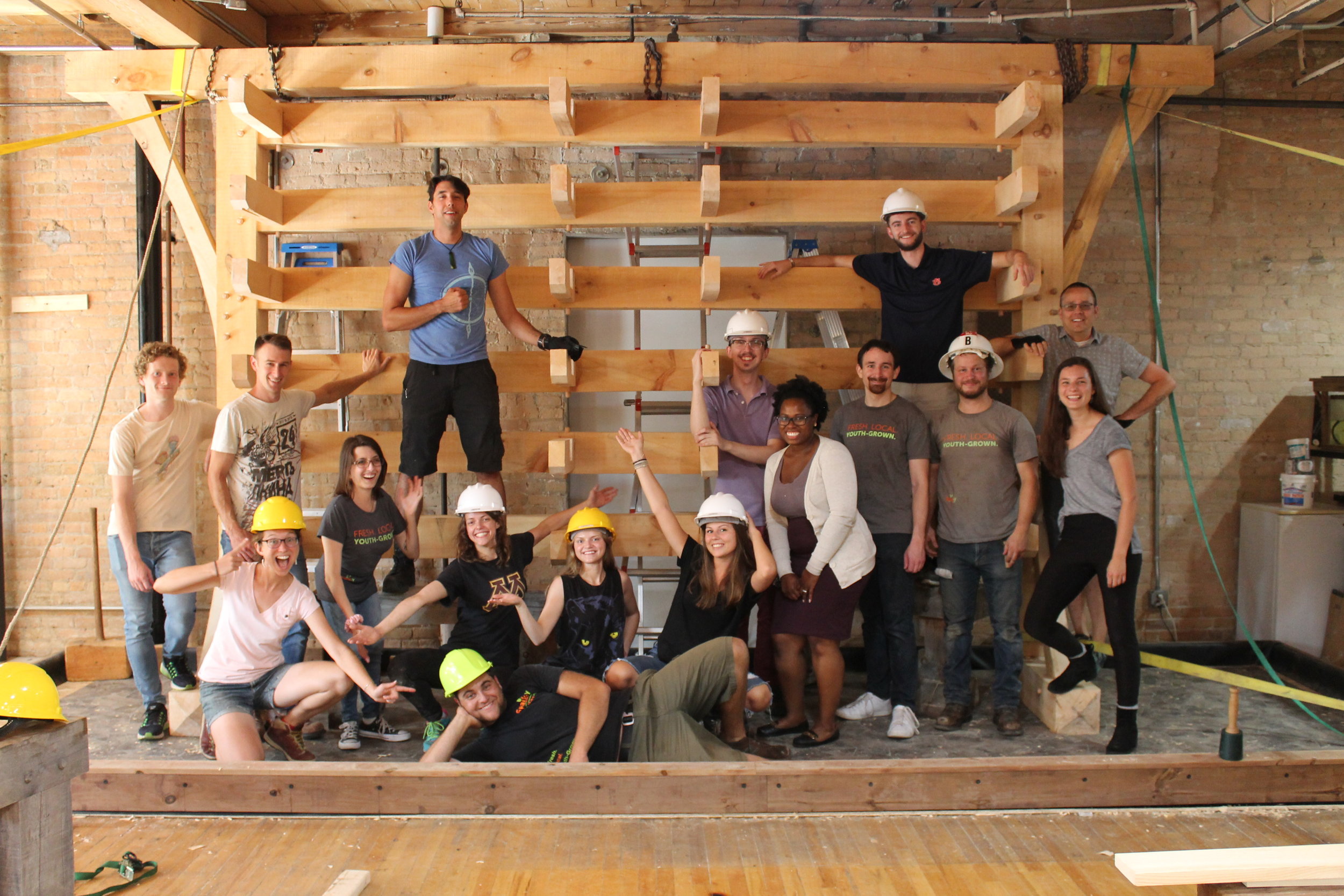The following blog post was written by Education Director, Cecelia Watkins, on current school programming partnerships and what’s ahead for the second half of the school year:
The 5th graders wait patiently in a circle, eager anticipation painted across their faces. They’ve sat through the introductions and the safety instructions, and they’re ready to get their hands on something. Gabrielle, a Spark-Y Sustainability Educator, numbers them off into five groups and encourages them to hold their group number on their fingers so they won’t forget.
“Group 1 will be with Cece, measuring our lumber. Group 2 will be with Carley, using the chop saw to cut our lumber. Group 3 will be with Andrew to use drills and assemble our system and Group 4 will be with me learning about seeds and aquaponics. Group 5 will be with Sam, also assembling the system. We’ll switch stations every 15 minutes. Okay everyone, go to your station leader!” The circle scatters into five groups, and the room is suddenly transformed from an ordinary classroom into a Spark-Y building zone. Eight hours later, the classroom is equipped with a fully constructed aquaponics system.
The incredible thing about the Community School of Excellence is that this didn’t happen in only one of their 5th grade classrooms: it happened in all of them. All five 5th grade classrooms at CSE now have their own youth-built aquaponics system. Over the course of the school year, this classroom will cycle water through their system, grow food, and connect their work to the broader community. This 3 phase model is where Spark-Y shines: Design/Build, Grow, Connect. There’s no doubt that these CSE students will remember their time with Spark-Y for years to come. In 2018-19, we’re scheduled to build the following brand new, permanent systems with youth:
5 aquaponics systems
10 raised bed gardens
2 vermicomposting systems
1 hoop house
1 grow tent
1 myco-remediation system (spore bank and fruiting chambers)
In the first three months of the school year, we’ve already built 3 aquaponics systems, 7 raised bed gardens, and the grow tent. If we continue cranking out systems at this pace, we could easily double the number of sustainable systems we’ve planned to build this year.
Except for one thing: this year, we don’t want to focus on building as many new systems as possible. Building something new is exciting and honestly, it’s relatively easy to generate funding and resources to support new builds. But what happens to those systems the following year? How about the year after that? And what about the next batch of CSE 5th graders?
The other week I found myself asking a group of students at Prairie View Elementary School if they knew what the word “sustainable” meant. These are especially bright kiddos, and several raised their hands to reply: “It means you can keep it going,” one said. Exactly. What if we were to measure our success not by how many new systems we build each year, but instead by how many we nurture to the point of thriving?
Prairie View students learn about the system they’re inheriting and plant new seeds.
This is our third year at Prairie View Elementary, and they are one of several school programs that we call “Systems Partners.” These are schools where we’ve decided to prioritize the health of existing sustainable systems, and empower the regular school day teachers to integrate the systems into their day to day curriculum. The reality is that it doesn’t make sense for Spark-Y staff to be in every classroom every day or every week. Another reality is that Spark-Y has been cranking out sustainable systems for years now: a lot of our school partners already have aquaponics systems, vermicomposting bins, and school gardens. What message can we send about sustainability if we don’t prioritize taking care of the incredible gifts we’ve inherited?
In 2018-19, we’re planning to empower 1,400+ youth in regularly occurring programs and another 500 in one-time events and workshops. The vast majority of these students won’t be building something new; they’ll be improving and expanding on systems that already exist. The students in Edison High School’s EASYpro (Edible Agriculture Schoolyard Professional) class will be re-building a defunct portion of their aquaponics system to allow them to produce microgreens for their school cafeteria. The students in Roosevelt High School’s Urban Farming class expanded their rain garden and the students at Northeast Middle School will be revitalizing the vermicomposting bins that fell into disuse. Spark-Y staff and Columbia Heights students are working closely with the Blooming Heights garden coordinator to re-shingle the garden shed and repair old cold frames.
Above: Roosevelt students add new perennials to the school rain garden, including American highbush cranberry.
In addition to those daily and weekly Spark-Y programs, this year we are supporting five “Systems Partners” schools, including Prairie View Elementary. Ensuring that the seeds we’ve planted across the Twin Cities are growing and healthy makes Spark-Y a true gardener of sustainable systems. It also gives me hope and energy as we embark on entirely new partnerships, including:
Leading multiple full day Spark-Y intensive programs through the Columbia Heights Recreation Department during school breaks (piloted this October during MEA days)
Facilitating an On the Job Training program for youth aged 18-24 with legal history through a partnership with Summit Academy; empowering these students to gain industry-recognized Food Safety certification and supporting them in obtaining meaningful employment
Working with Edison youth in the DCD (Developmental Cognitive Disabilities) program on the school’s sustainable waste stream management through recycling, composting and bioremediation
Columbia Heights Rec Department student Jacoby and the Hydraulic Arm he built in a 3 day Spark-Y program
This year we’ve decided to invest some time in strengthening Spark-Y’s foundations. In addition to tending existing sustainable systems in 12 schools across the Twin Cities, we’re taking a deep dive into developing and polishing our curriculum and organizational systems. We want to streamline our processes, document best practices and make sure that we do can be replicable. We’re challenging ourselves as a staff team to take the quality of our programming to the next level by integrating restorative practices to our behavior management plan, connecting our curriculum to broader school units, and linking our activities to MN state standards. When the 5th graders at the Community School of Excellence are in the school’s Justice unit, their Spark-Y days will be filled with food justice and watershed protection activities. When they go to take the Science MCA test at the end of the year, they will be equipped with hours of Spark-Y facilitated, hands-on experiments leveraging their in-class aquaponics systems. In the long run, the investments we make in quality and care of our systems--whether they’re meant to produce food, empowered youth, or both--will pay off by allowing us to not only achieve our mission, but keep that impact going.
Northeast Middle School student hangs out at the square foot gardening activity table when he was struggling to follow power tool safety directions during Garden Build Day. Within minutes of beginning this hands-on activity he went from angry to calm and proud of his work.
